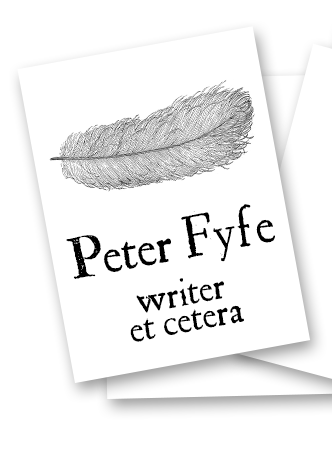Et cetera > Column 8 PhD
My candidature for the coveted [sic] Column 8 PhD…
It all began with the call for a light bulb joke…
"Consider the poor soul who has to climb the 225 metres to the top of the ABC's steel lattice transmission tower near Liverpool to change the aircraft warning light," suggests John Howard, of Hornsby, and it is indeed a terrifying prospect. Speaking of which, we're considering suspending this line of inquiry, fearing that we may be facing a potential avalanche of bad jokes. "Once you find the trickiest light globe in Sydney," asks Peter Rosier, of Leura, "how many Column 8 readers will it take to change it?"
It had to happen (dire joke warning, Column 8, yesterday). Peter Fyfe, of Erskineville, has established how many Column 8 readers it takes to change a light globe - 147: "One to write to Column 8, one to correct the grammar, three to dispute the grammatical correction, one to report their great-grandfather changed the first light bulb in Oodnagalahbi in 1923, six to report they still have a light bulb their grandmother made in a light bulb factory during the war, 41 to claim first light-bulb changing relatives in other remote communities (including one on a submarine), 73 to write unpublishable vaguely associated stories (excluding the 34 about candles, gas lights and hurricane lamps), one to ask how many Dutch Column 8 readers it takes to change a tulip bulb, 19 to attempt a discourse on bulbs-versus-globes and one smart alec to invoke some apres-post-modern critical theory that explains it all."
"To 'raise his societal profile' is an awful reason to contribute to this inestimable column," laments Suzanna Wicks, of Potts Point (Advice on getting published in Column 8, yesterday). "His traits would never include making an altruistic contribution to the intellectual and cultural life in Sydney, unlike our light-globe-changing bean-counter Peter Fyfe, who provides sound advice on daily living." Quite.
Speaking of Mr Fyfe, and his heroic solution to the conundrum "How many Column 8 readers does it take to change a light globe?" Neil Saintilan, of Oatley, is brief, pedantic, and straight to the point. "Change?" he asks. "Don't you mean exchange?"
''I write regarding Peter Fyfe's list, in Thursday's column, of the 147 Column 8 readers needed to change a light bulb,'' writes John Greenway, of Wentworth Falls. ''After careful scanning of the list, I noticed that there is one person missing: the one who actually changes the bulb. Surely the total number of people required is really 148.'' That seems a tad practical for Column 8, but the point is well made. Paul Doepel, of Oatley, wonders why we've even bothered to ask the question: ''The answer has been around for yonks!'' Paul insists. '''Many'. As in 'Many hands make light work'.''
Still with light globes. "Remember the 15 watt red pilot lights attached to power points in the 1940s?" asks Barrie Brown, of Gordon. "I used mine as a darkroom light in the laundry for processing box camera photographs. It now still graces a string of colours above the BBQ." Peter Fyfe warned us about the "longest functioning light globe" yarn in his "How many Column 8 readers?" essay last week, and now it's happened. Many readers have suggested that Mr Fyfe should be awarded a C8 PhD for his work. The nomination is now before the relevant committee.
Peter Fyfe, of Erskineville and light-globe changing fame, appears to be quite keen on receiving a C8PhD (Column 8, yesterday), as the following submission makes clear: "One feels compelled to write an abstract for a dissertation to put before the relevant committee. In this dissertation I will argue that, by using the light-bulb joke as signifier of a meta-narrative, it is possible to erect a critical framework through which to explore the notion that it is Column 8 and not the light bulb that enlightens. The Achilles heel of the hyper-positivism and ultra-rationalism that dominates a culture framed by technology is its collective inability to hypothesise a viable theory that predicts the observable phenomenology of affect and response to a light-bulb joke." Mr Fyfe goes on at some length, and presents a convincing, if rather long-winded thesis. The relevant committee is studying his proposition.
"Peter Fyfe makes a good C8PhD dissertation," concedes Lisa Phillips, of North Turramurra (Column 8, yesterday), "however he must lose points for his misuse of the words 'affect and response'. 'Affect' is a verb and cannot masquerade as a noun. His grammatical gaffe had the effect of affecting me rather badly, hence my haste to respond with this response." The vexing imbroglio of the correct deployment of the word "affect" is fraught with fraughtness, we acknowledge, but Fyfe may yet be on solid ground here. The matter has been referred to the relevant committee, and we expect a definitive ruling before Michaelmas.
Who would have imagined that "affect" could have had such an effect? We've had many emails like this one: "I beg to differ with Lisa Phillips's assertion that 'affect' can be used only as a verb," begs Dr Tim Ingall, of Scottsdale, Arizona (Column 8, yesterday). "In medicine, we have used the term 'blunted affect' for many years to describe someone who has reduced expressions of emotion, which can be seen in patients with either depression or Parkinson's disease. For what it is worth, the online Merriam-Webster dictionary states that 'affect' can be used as a noun." Peter Fyfe's C8PhD may be in the bag.
For the record, the full abstract of my dissertation…
In this dissertation I will argue that, by using the light-bulb joke as signifier of a meta-narrative, it is possible to erect a critical framework through which to explore the notion that it is Column 8 and not the light bulb that enlightens. The Achilles heel of the hyper-positivism and ultra-rationalism that dominates a contemporary culture framed by technology is its collective inability to hypothesise a viable theory that adequately predicts the observable phenomenology of affect and response to a light bulb joke.
If viewed from a quantum perspective, Column 8, as agent of delivery, is indistinguishable (at least epistemologically) from any wave of emergent laughter at the point of reason’s particular collapse in response to the joke and any ensuing enlightenment arising from the temporary cessation of the rational. Ontologically, this leads to the valorisation of the ephemeral overtaking the tangible (despite its persistent modernity), a necessary pre-cursor in the realisation of the soteriological role of humour in the dawning of the Age of Hilarious.
And the entry confirming I am indeed a C8PhD, opining on a suitably vexed topic!
It can be a mistake to mention religion. Your parents must have told you not to discuss sex, religion or politics at dinner parties, but Column 8 did and must wear the consequences. Peter Fyfe C8PhD, of Erskineville, puts his oar in with, ''We should perhaps mention that in thinking they know, or worse are certain of, the nature of the 'ultimate being', theists are by definition idolaters. By admitting they can't know much less be certain of the 'subject of belief'', agnostics are, in fact, the true believers, provided they keep seeking answers. If they don't, they're not really agnostic, just idle, like non-believers.''
And yes, everything you're thinking about all that is true.





